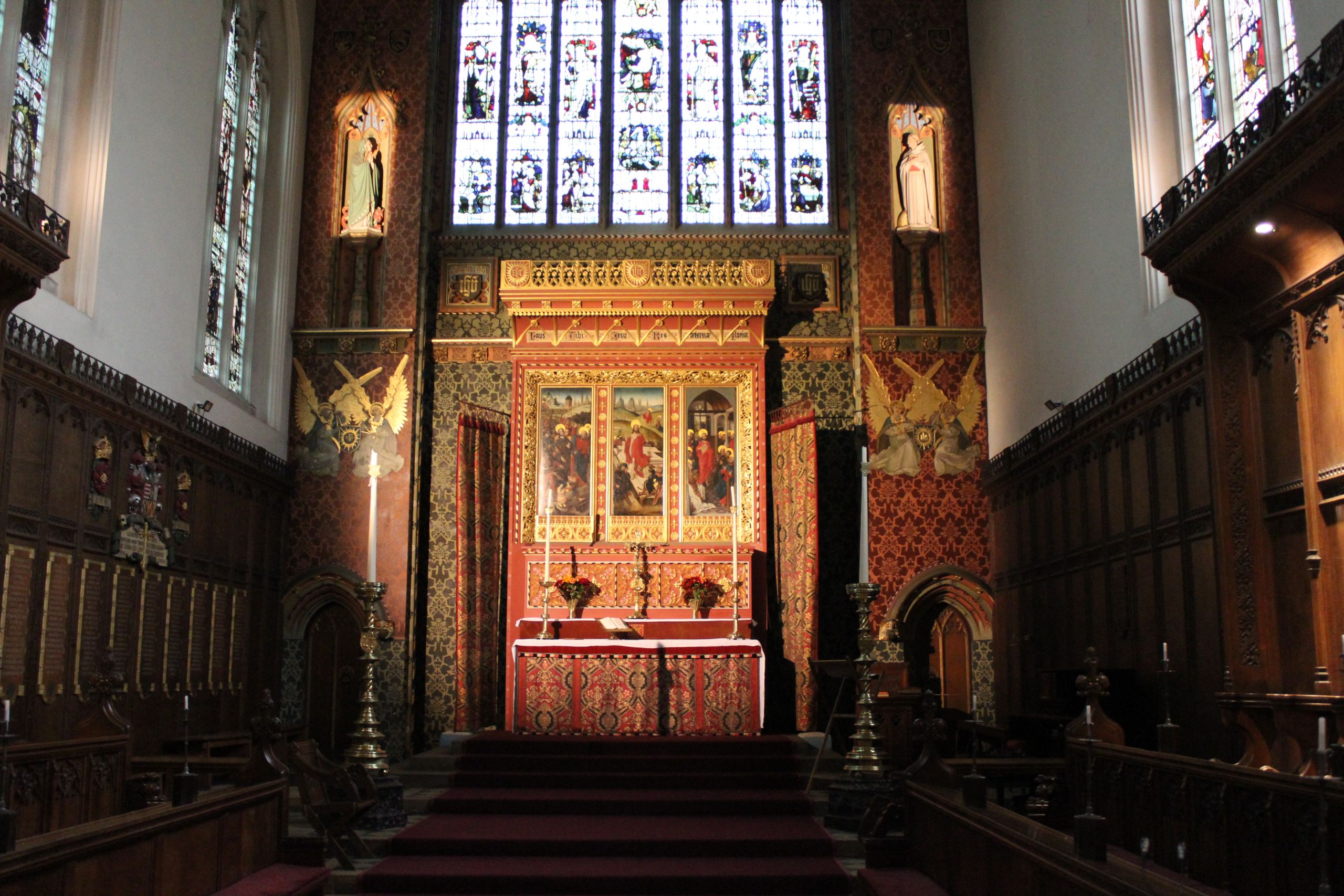The Revd Donald Reeves (1954)
1934-2024

Canon Paul Oestreicher writes in Church Times:
DONALD REEVES, a long-time Rector of St James’s, Piccadilly, died on the eve of All Saints’ Day, aged 90. Brought up in a middle-class family, he was educated at Sherborne School, from where he went to Cambridge. When, with no religious background, he chose to train for priesthood, his parents were not pleased. “In my own way” — and perhaps God’s — Donald had set his course.
Trained at Cuddesdon Theological College and radicalised in 1968 at an urban training centre in downtown Chicago, Donald served his curacy in Maidstone, and was then recruited by the flamboyant Bishop of Southwark, Mervyn Stockwood, to be his chaplain. Both men gay, they liked each other; yet, Mervyn provided lessons for Donald in how to be and how not to be.
More than a decade as vicar on a housing estate in south London was the right training ground for retuning the church to the needs of the local community. Donald spoke their language. Among his curates was the redoubtable campaigner for women’s ordination Dr Una Kroll, in every way his equal. Two challenging prophets — not easy.
Then the Donald who was soon to become famous — and infamous — accepted the failing parish of St James’s, Piccadilly, in the heart of London, known for little more than its society weddings. He came with a demanding programme of prayer, proclamation, and peacemaking. Most parishes claim to be there for all people. This one really was: still Church of England, but international, inter-ethnic, inter-sexual, and interreligious. The street people rubbed shoulders with the intellectuals. In the coldest of winters, St James’s became a sanctuary for the homeless. It was God’s place.
The pulpit was not just Donald’s, although he did risk 40-minute sermons. These could also turn into dialogues. He had the self-confidence to invite his opponents — not enemies — including Norman Tebbit and Enoch Powell; Tony Benn, too. He did have one enemy: the Cold War. So, he invited Soviet officers to talk with their NATO opposites. That led to Margaret Thatcher’s calling him “a very dangerous man”, which gave him the title for his memoir. Nevertheless, those two quite liked each other.
When Bishop Trevor Huddleston returned from Africa, Donald gave him a home at the rectory. That brought in Tutu and Mandela with their thanks.
Donald’s radical politics were upfront. The Bishop of London put aside the many consequent letters of complaint, quietly telling him to go on being Donald.
Come Easter, the Church’s greatest feast, he invited all to the dawn eucharist and then to a five-star hotel in Mayfair near by for a slap-up breakfast — on Donald — street people to the fore.
Donald was a spiritual activist whose own “Eucharistic Prayer” (below) will tell you all you need to know about him. Having persevered in London for 18 years, he thought that it was time for a new challenge. The Church was unlikely to provide it. So, he formed an organisation, The Soul of Europe, a foil to the looming tragedy of Brexit.
In Bosnia, war was raging. Peacemaking now had to be hands-on. The Ferhadija Mosque in Banja Luka had been burned down by Serb Christians. Donald prevailed even on them to join him in raising the funds to rebuild it. For that, and for more, in a German mosque, alongside local Jews, Muslims, and Christians, Donald was awarded the Muhammad Nafi Tschelebi Peace Prize for inter-religious — not just dialogue — but cooperation: from belief to action. He was also appointed MBE in 2008 for interfaith work, conflict resolution, and peace-building in Bosnia.
To many, Donald personified the glorious liberty of the children of God. Was he perfect, then? Of course not. The day of his death was also the anniversary of the Lutheran Reformation Day. There was something of the great Reformer in Donald.
Donald also loved to perform Bach’s organ compositions, accompanied by his own reflections on peace and reconciliation.
None of this would have happened without the emotional and practical support with Donald’s partner of 53 years, the artist Peter Pelz. Throughout Donald’s last, and sadly, demented days, Peter was his devoted carer.
